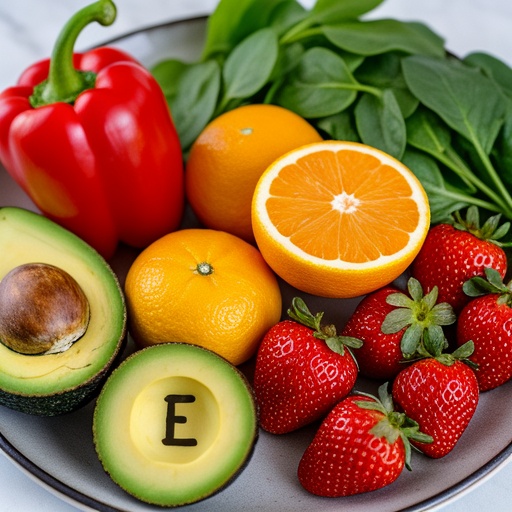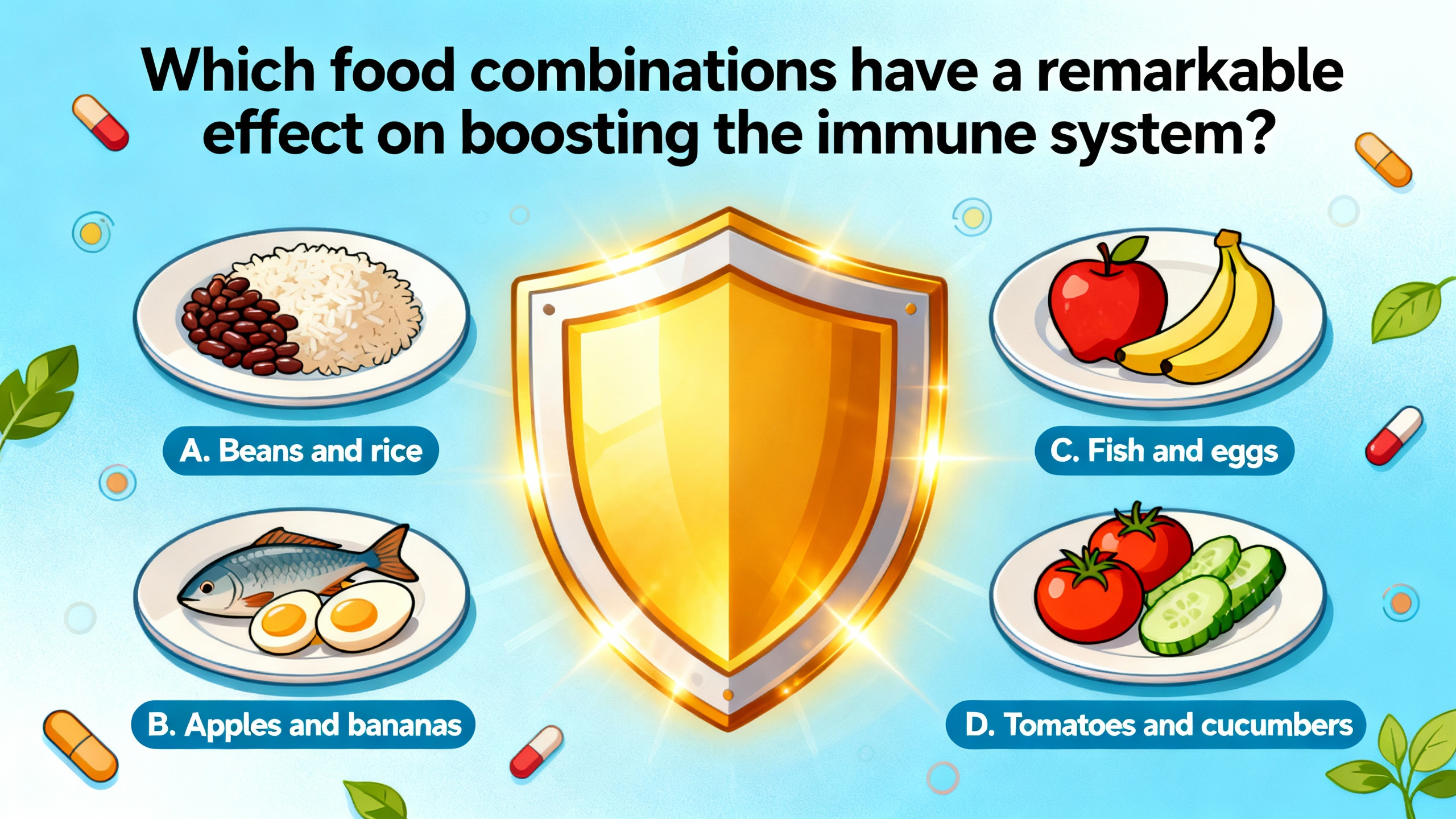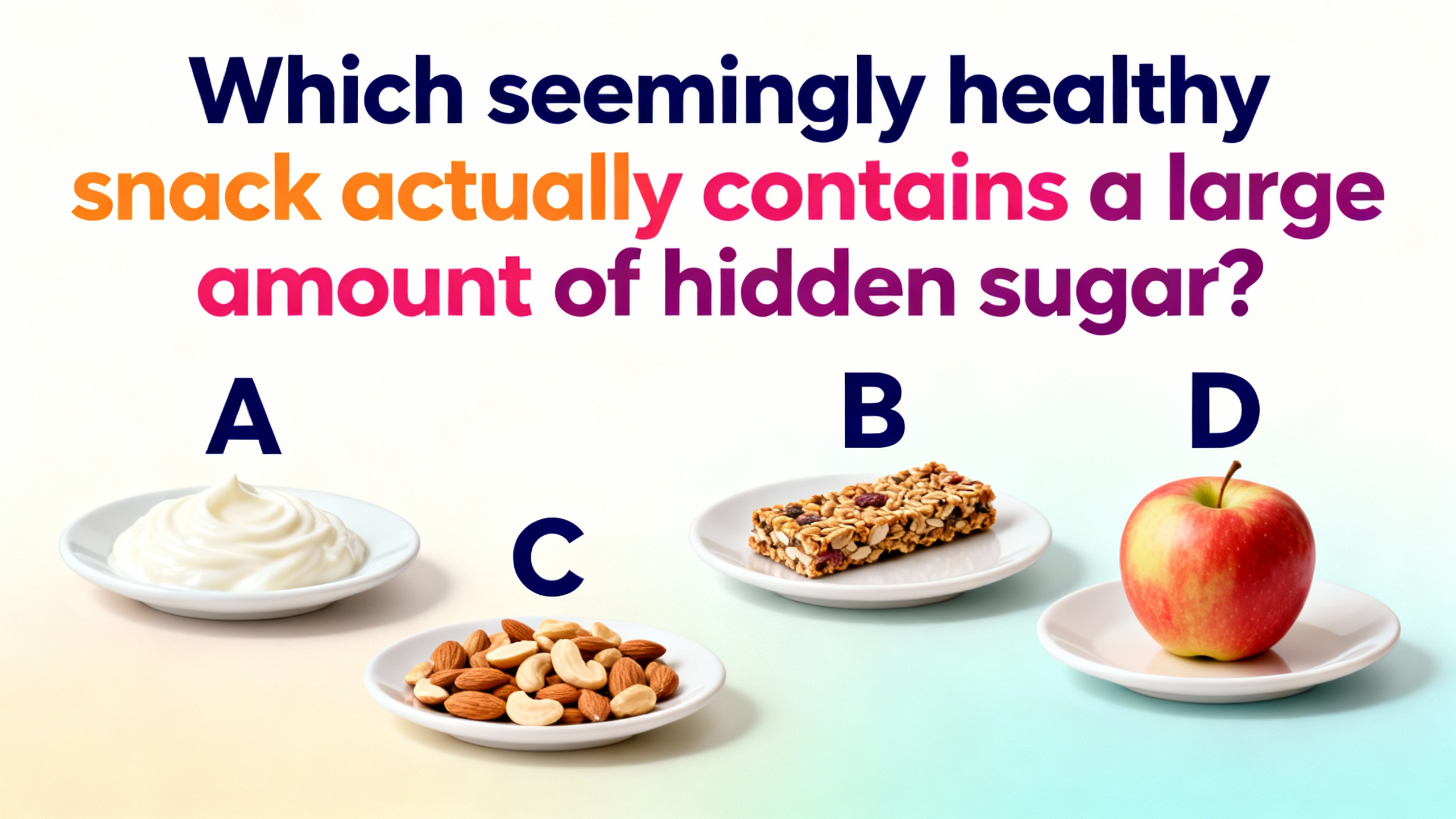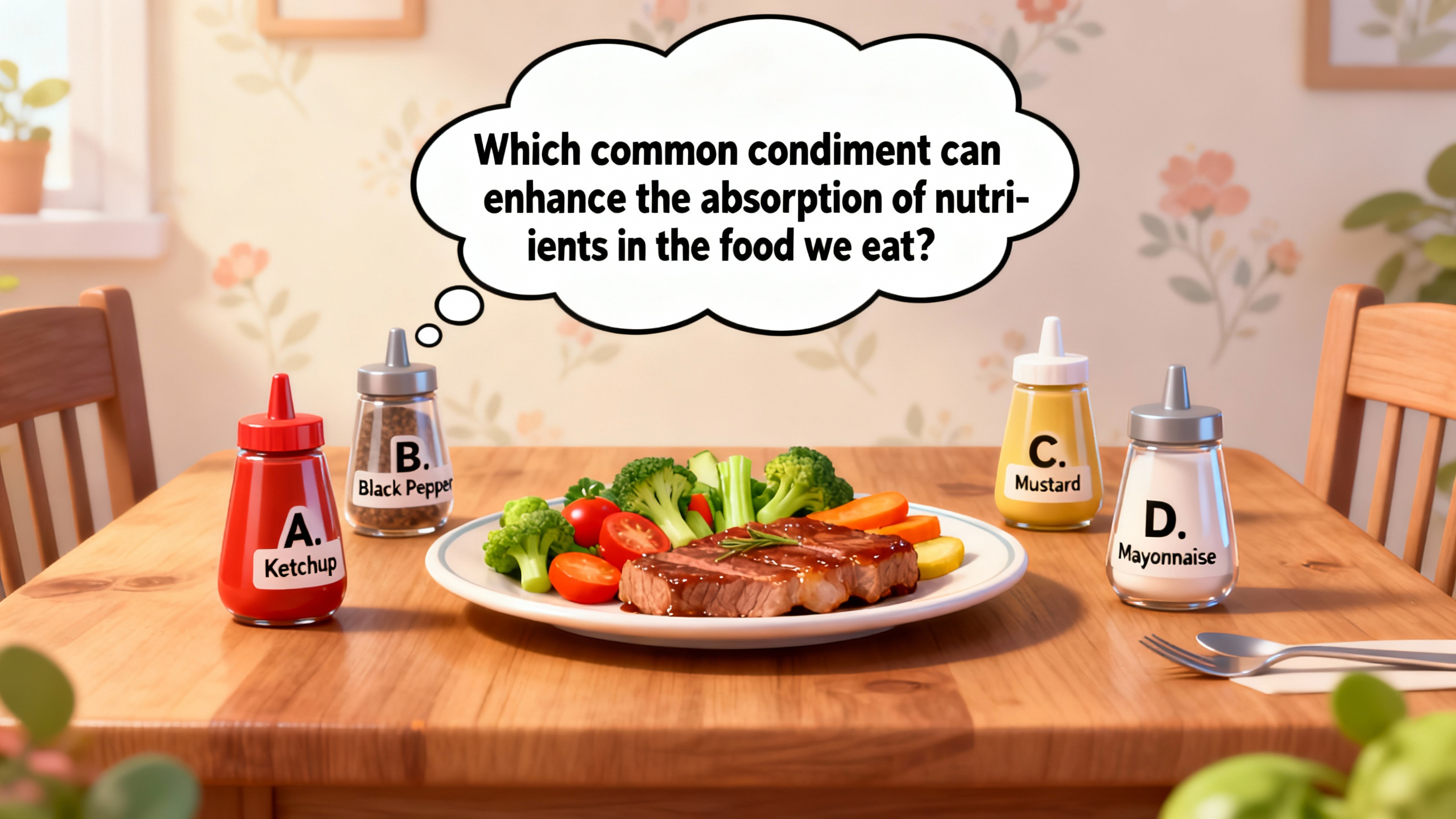Complementary Protein Combinations
 Combining different protein sources can significantly enhance immune - system function. The immune system is a complex network of cells, tissues, and organs that work together to defend the body against harmful invaders. Proteins are the building blocks of this system, playing a vital role in the production of antibodies, enzymes, and hormones that are essential for proper immune function. For example, legumes and grains are a classic pair. Legumes like beans, lentils, and chickpeas are rich in lysine but relatively low in methionine. Beans, such as black beans, kidney beans, and pinto beans, are not only a great source of lysine but also contain other important nutrients like fiber, folate, and potassium. Lentils come in various colors, including green, brown, and red, and are known for their high protein content and quick cooking time. Chickpeas, also known as garbanzo beans, are a staple in many cuisines and can be used to make hummus, a popular dip. On the other hand, grains such as rice, wheat, and oats are high in methionine but lack lysine. Rice is a staple food for a large part of the world's population and comes in different varieties, such as white rice, brown rice, and basmati rice. Wheat is used to make a wide range of products, including bread, pasta, and cereals. Oats are a nutritious grain that can be eaten as oatmeal or used in baking. When consumed together, they form a complete protein source. This means that they provide all the essential amino acids that the body cannot produce on its own and must obtain from food. Proteins are essential for the production of antibodies, which are crucial for the immune system to recognize and fight off pathogens. Antibodies are Y - shaped proteins that bind to specific antigens on the surface of pathogens, marking them for destruction by other immune cells. Without an adequate supply of protein, the body may not be able to produce enough antibodies to effectively combat infections. Another great combination is nuts and seeds with dairy products. Nuts and seeds, like almonds and sunflower seeds, are good sources of healthy fats, vitamins, and minerals. Almonds are rich in vitamin E, magnesium, and calcium, while sunflower seeds are a great source of selenium, a mineral that plays a role in immune function. These healthy fats, such as monounsaturated and polyunsaturated fats, are important for maintaining the integrity of cell membranes in immune cells. Dairy products, such as milk and yogurt, are high in protein and calcium. Milk is a complete protein source and also contains other important nutrients like vitamin D, which is essential for calcium absorption. Yogurt, especially Greek yogurt, is a concentrated source of protein and also contains probiotics, beneficial bacteria that can help support the immune system in the gut. The combination provides a wide range of nutrients that support the production and function of immune cells. For instance, zinc from nuts and seeds and vitamin D from dairy work together to regulate immune responses and help the body defend against infections. Zinc is involved in the development and activation of T - cells, a type of white blood cell that plays a central role in the immune response. Vitamin D helps to modulate the immune system by influencing the production of cytokines, signaling molecules that regulate immune cell activity.
Combining different protein sources can significantly enhance immune - system function. The immune system is a complex network of cells, tissues, and organs that work together to defend the body against harmful invaders. Proteins are the building blocks of this system, playing a vital role in the production of antibodies, enzymes, and hormones that are essential for proper immune function. For example, legumes and grains are a classic pair. Legumes like beans, lentils, and chickpeas are rich in lysine but relatively low in methionine. Beans, such as black beans, kidney beans, and pinto beans, are not only a great source of lysine but also contain other important nutrients like fiber, folate, and potassium. Lentils come in various colors, including green, brown, and red, and are known for their high protein content and quick cooking time. Chickpeas, also known as garbanzo beans, are a staple in many cuisines and can be used to make hummus, a popular dip. On the other hand, grains such as rice, wheat, and oats are high in methionine but lack lysine. Rice is a staple food for a large part of the world's population and comes in different varieties, such as white rice, brown rice, and basmati rice. Wheat is used to make a wide range of products, including bread, pasta, and cereals. Oats are a nutritious grain that can be eaten as oatmeal or used in baking. When consumed together, they form a complete protein source. This means that they provide all the essential amino acids that the body cannot produce on its own and must obtain from food. Proteins are essential for the production of antibodies, which are crucial for the immune system to recognize and fight off pathogens. Antibodies are Y - shaped proteins that bind to specific antigens on the surface of pathogens, marking them for destruction by other immune cells. Without an adequate supply of protein, the body may not be able to produce enough antibodies to effectively combat infections. Another great combination is nuts and seeds with dairy products. Nuts and seeds, like almonds and sunflower seeds, are good sources of healthy fats, vitamins, and minerals. Almonds are rich in vitamin E, magnesium, and calcium, while sunflower seeds are a great source of selenium, a mineral that plays a role in immune function. These healthy fats, such as monounsaturated and polyunsaturated fats, are important for maintaining the integrity of cell membranes in immune cells. Dairy products, such as milk and yogurt, are high in protein and calcium. Milk is a complete protein source and also contains other important nutrients like vitamin D, which is essential for calcium absorption. Yogurt, especially Greek yogurt, is a concentrated source of protein and also contains probiotics, beneficial bacteria that can help support the immune system in the gut. The combination provides a wide range of nutrients that support the production and function of immune cells. For instance, zinc from nuts and seeds and vitamin D from dairy work together to regulate immune responses and help the body defend against infections. Zinc is involved in the development and activation of T - cells, a type of white blood cell that plays a central role in the immune response. Vitamin D helps to modulate the immune system by influencing the production of cytokines, signaling molecules that regulate immune cell activity.
Vitamin - Rich Combinations
 Pairing foods rich in different vitamins can also have a remarkable impact on the immune system. Vitamin C and vitamin E are a powerful duo. Foods high in vitamin C, such as citrus fruits, strawberries, and bell peppers, are well - known for their antioxidant properties. Citrus fruits, like oranges, lemons, and grapefruits, are not only refreshing but also packed with vitamin C. Strawberries are a delicious and nutritious fruit that is also rich in other antioxidants like anthocyanins. Bell peppers come in different colors, including green, red, and yellow, and are a great source of vitamin C and other vitamins like vitamin A. They can help protect immune cells from damage caused by free radicals. Free radicals are unstable molecules that can cause oxidative stress in the body, leading to damage to cells and tissues. Oxidative stress has been linked to a variety of diseases, including cancer, heart disease, and autoimmune disorders. By neutralizing free radicals, vitamin C helps to maintain the health and function of immune cells. Vitamin E, found in foods like avocados, spinach, and olive oil, is another antioxidant that works synergistically with vitamin C. Avocados are a unique fruit that is rich in healthy fats, vitamin E, and other nutrients like potassium. Spinach is a leafy green vegetable that is packed with vitamins and minerals, including vitamin E, vitamin K, and folate. Olive oil is a staple in the Mediterranean diet and is known for its high content of monounsaturated fats and vitamin E. When these two vitamins are consumed together, they can enhance each other's antioxidant effects. Vitamin C can regenerate vitamin E after it has neutralized a free radical, allowing vitamin E to continue its protective work. This combination helps to maintain the integrity of cell membranes in immune cells, ensuring they can function properly to fight off diseases. The cell membrane is a crucial barrier that protects the cell from the external environment and allows for the exchange of nutrients and waste products. If the cell membrane is damaged by free radicals, the immune cell may not be able to perform its functions effectively.
Pairing foods rich in different vitamins can also have a remarkable impact on the immune system. Vitamin C and vitamin E are a powerful duo. Foods high in vitamin C, such as citrus fruits, strawberries, and bell peppers, are well - known for their antioxidant properties. Citrus fruits, like oranges, lemons, and grapefruits, are not only refreshing but also packed with vitamin C. Strawberries are a delicious and nutritious fruit that is also rich in other antioxidants like anthocyanins. Bell peppers come in different colors, including green, red, and yellow, and are a great source of vitamin C and other vitamins like vitamin A. They can help protect immune cells from damage caused by free radicals. Free radicals are unstable molecules that can cause oxidative stress in the body, leading to damage to cells and tissues. Oxidative stress has been linked to a variety of diseases, including cancer, heart disease, and autoimmune disorders. By neutralizing free radicals, vitamin C helps to maintain the health and function of immune cells. Vitamin E, found in foods like avocados, spinach, and olive oil, is another antioxidant that works synergistically with vitamin C. Avocados are a unique fruit that is rich in healthy fats, vitamin E, and other nutrients like potassium. Spinach is a leafy green vegetable that is packed with vitamins and minerals, including vitamin E, vitamin K, and folate. Olive oil is a staple in the Mediterranean diet and is known for its high content of monounsaturated fats and vitamin E. When these two vitamins are consumed together, they can enhance each other's antioxidant effects. Vitamin C can regenerate vitamin E after it has neutralized a free radical, allowing vitamin E to continue its protective work. This combination helps to maintain the integrity of cell membranes in immune cells, ensuring they can function properly to fight off diseases. The cell membrane is a crucial barrier that protects the cell from the external environment and allows for the exchange of nutrients and waste products. If the cell membrane is damaged by free radicals, the immune cell may not be able to perform its functions effectively.
Mineral - Rich Combinations
Minerals play an important role in immune function, and certain combinations can be particularly beneficial. Iron and zinc are two minerals that work together to support the immune system. Iron is essential for the production of hemoglobin, which transports oxygen to cells, including immune cells. Without enough iron, the immune cells may not receive an adequate supply of oxygen, which can impair their function. Zinc is involved in numerous enzymatic reactions in the body and is crucial for the development and function of immune cells. It is required for the proper functioning of enzymes involved in DNA synthesis, cell division, and the activation of immune responses. Zinc also plays a role in the production of cytokines, which are important for coordinating the immune response. Red meat, spinach, and pumpkin seeds are good sources of iron. Red meat, such as beef and lamb, is a highly bioavailable source of iron, meaning that the body can easily absorb and use it. Spinach is a plant - based source of iron, although its absorption may be affected by other components in the food, such as oxalates. Pumpkin seeds are not only a good source of iron but also contain other minerals like magnesium and zinc. While oysters, beef, and chickpeas are rich in zinc. Oysters are one of the best sources of zinc, containing high amounts of this mineral per serving. Beef is also a good source of zinc, along with other nutrients like protein and B - vitamins. Chickpeas are a plant - based source of zinc and are also rich in fiber and protein. Consuming these foods in combination can help ensure that the body has an adequate supply of both minerals. A proper balance of iron and zinc is necessary for the normal functioning of the immune system, as they are involved in processes such as cell division, DNA synthesis, and the activation of immune responses. This combination helps the body to better defend against bacteria, viruses, and other pathogens. For example, a deficiency in either iron or zinc can lead to a weakened immune system, making the body more susceptible to infections. By combining foods rich in these two minerals, we can support the immune system and maintain good health.










